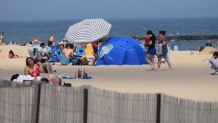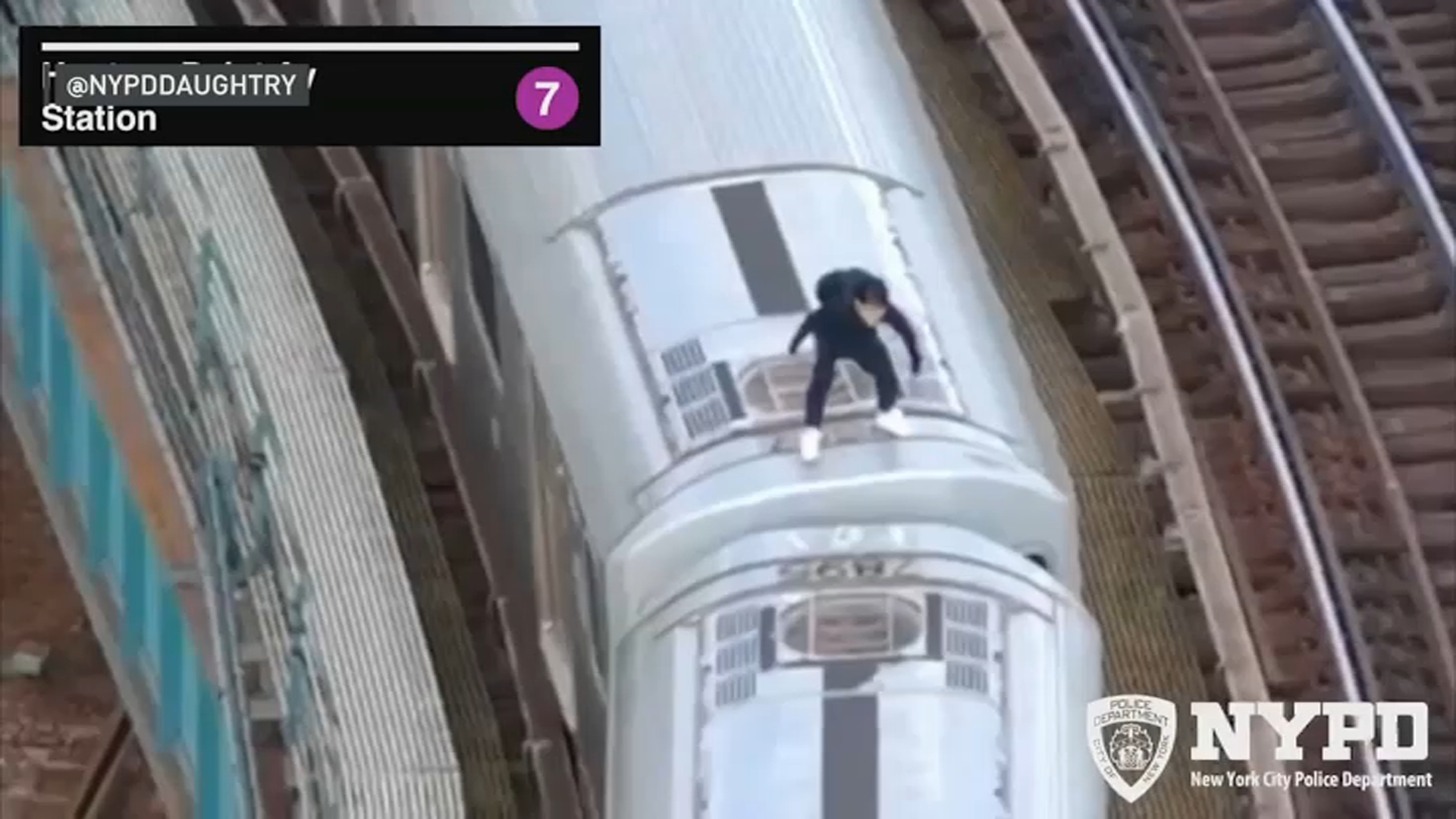State lakes and beaches along the Jersey Shore, New York, Connecticut -- and even Delaware -- will be open with some restrictions in time for Memorial Day weekend in a planned regional effort as the tri-state continues to grapple with the COVID-19 outbreak.
New York City beaches, however, will remain closed through the holiday weekend, Mayor Bill de Blasio said. The mayor says walking along beaches will be permitted, but swimming remains banned.
"Nothing has changed in the status of New York City, we do not want to see non-essential travel," de Blasio said Sunday.
To enforce the city's closure of beaches, de Blasio says the NYPD will continue patrols along the city's beaches and fencing will be installed to control entry points. Preparing for the possibility of beaches reopening at some point in the summer months, de Blasio says lifeguards will begin training to be in place once the city is ready to open beaches.
For more on the latest of what's available to do up and down the Jersey Shore, click here.
News
The state beaches and lakeshores will reopen on May 22. The reopening is a multi-state coordinated effort because, New York Gov. Andrew Cuomo said Friday, "we are one multi-state region. What one state does, will affect other states. That is apparently, no more clear, than when it comes to opening beaches."
"We want everybody to fun, but we want everybody to be safe," New Jersey Gov. Phil Murphy said Thursday when announcing the reopening. "The Shore is central to our Jersey identity and we want to ensure that families can safely enjoy it this summer."

To that end, there are a series of restrictions that will come when the states' beaches reopen later this month.
Murphy said the state is also reviewing guidance on pools and charter fishing programs. Cuomo also said that pools will remain closed for the time being.
Among the restrictions are:
- Every beach must be required to establish capacity limitations. However, Murphy said the state will leave it to local leaders to decide the method that would be best for their community, including limiting the numbers of available beach tags for any given day or through utilizing technology such as through a geographic special analysis. Additionally, Cuomo said that capacity will not exceed more than 50 percent.
- Social distancing measures requiring at least six foot distances between beach goers will be enforced except for family groups household members, caretakers or couples. This is the same approach taken with state parks. Local leaders will also decide how to best enforce social distancing.
- Organized games and contact sports will be prohibited as well as beach recreational summer camps and special events that draw people to the beach such as concerts, festivals, or fireworks. "Each of our shore communities have unique characteristics and we know there is no one size fits all approach. However, some restrictions do fit across the board," Murphy said.
- Regularly and properly clean shower pavilions, changing areas and restrooms. "Sanitation will also be of great importance especially since this order will allow for shower pavilions, changing areas and restrooms to remain open for visitors but they must regularly and properly cleaned," Murphy said, adding that restroom facilities in state and county parks will also reopen, provided they undergo frequent and proper cleaning.
- Boardwalk businesses will also face restrictions. Boardwalk restaurants must continue to operate as take-out and delivery only, but the rides, arcades and other draws must remain closed. Other features that are meant to draw a crowd like a playground or visitor center must similarly remain closed for the time being.
- Ensuring staffing levels are adequate. This is necessary in order to achieve the above measures and the for crowd control.
Cuomo said that those beaches that are controlled by municipalities, counties and local governments have the option of remaining closed or opening. However, if they open, they must adopt the state guidelines (above).
Additionally, Murphy said that beach and lakefront communities and counties will also engage in comprehensive outreach campaigns using both traditional and online media – "and yes, even the ubiquitous planes carrying banners to ensure that all visitors are aware of the restrictions in place as well as what is expected of them while visiting."

While not specifically ordering it, the state is highly recommend that beachgoers wear a face covering, particularly when social distancing is difficult to maintain such as waiting in line.
As of Friday afternoon, this was the status of some popular beaches:
* Island Beach State Park is not charging an entrance fee and may not beyond Memorial Day.
* Seaside Park Boardwalk opened today. Sunbathing and sitting is now allowed on the beach.
* Seaside Heights also allows sunbathing and sitting on the beach.
* Lavelette Boardwalk is open.
* Mantolooking opened its beach.
* Asbury Park opened its beach and boardwalk ahead of schedule.
* Sandy Hook now allows sunbathing and swimming.
The news of New Jersey beaches opening comes a day after Murphy announced the state is easing restrictions on construction, retail stores and drive-ins.
New Jersey state now reports more deaths and cases per 100,000 residents than any in the country, yet Murphy says New Jersey is ready to take its next small steps, given its overall success in flattening the curve.
"Public health creates economic health. Our shore economic is a tremendous driver of local jobs and revenues. Because of the work of millions of New Jerseyans out there to slow the spread and lower the curve we can confidently take this step today," Murphy said.



